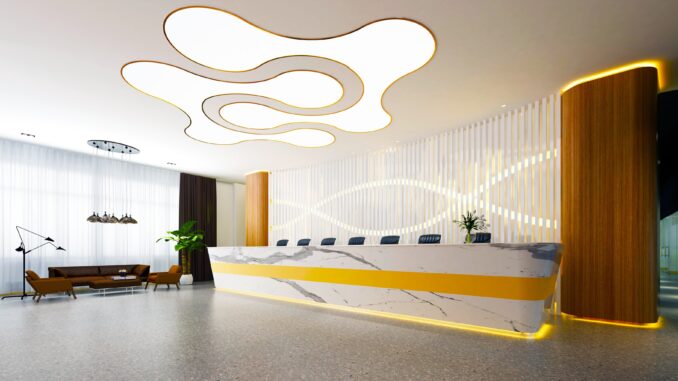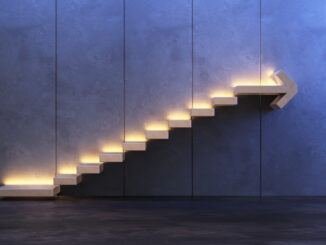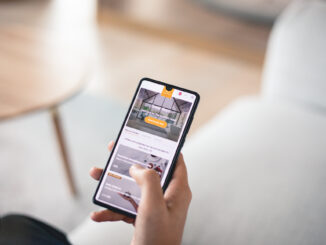
By Nicki Dehler, VP of Product Management, StayNTouch - 4.23.2020
The coronavirus pandemic has created an unprecedented level of anxiety and economic uncertainty around the globe, forcing hoteliers to re-examine their fundamental strategies of preparedness, business survival, and technological investment.
COVID-19, more than anything before it, has underscored the critical need to protect our businesses from future existential threats. While we could not have predicted the devastation that COVID-19 has wrecked on the hospitality industry and the global economy, we can still imagine the future which awaits on the other side.
What will hoteliers do differently, and how will our industry adjust? What will hotel recovery plans look like? More importantly, how can hoteliers re-evaluate their technology strategy to protect their property well into the future, especially in the face of unforeseen global pandemics?
Identifying Technology That Can Adapt to the Post-COVID World
Dwindling occupancy and waves of temporary closures are forcing hotels of all sizes to make swift adjustments to their operational and investment strategies. These updates include optimizing operations, cross-training staff, re-evaluating internal spending, property updates, cancellation policy changes, pricing adjustments, and audits of existing technological infrastructure.
It’s important to emphasize that hoteliers should still invest in their properties一in spite of the unprecedented challenges presented by coronavirus. While hoteliers will undoubtedly be pressured to cut spending in the coming months, they should still audit their existing technology stack to make sure their existing platforms aren’t increasing costs and limiting operational efficiencies.
Cloud-based mobile platforms have always enjoyed inherent advantages over their on-premise legacy counterparts. Mobile PMS platforms can increase staff efficiency, boost ancillary revenue, and enhance the personalization and convenience of the guest experience. But they will also greatly increase in importance during the post-COVID era.
While the effects of the coronavirus pandemic have been dire, there are increasingly optimistic signs that the worst may be over. In America, the CDC indicates that the COVID outbreak could reach its peak this week, while many European nations mull the possibility of easing coronavirus lockdowns. Historically, the hospitality industry has always fared well in the face of external crises, and experienced healthy rebounds following 9/11, the 2002 SARS epidemic, and the 2008 Great Recession.
After all, human beings do have an innate need to travel and explore the world around them. In fact even today, hotels in APAC are enticing guests with luxury 14-day quarantine packages, while one luxury hotel in Switzerland is offering health-based add-ons such as coronavirus testing and medical care. Of course, these examples underscore one important fact: While travel will eventually return to normal levels post-COVID, customer behavior will be changed forever. And it’s up to hoteliers to anticipate these changes, and reflect them in their technology purchases.
A Mobile PMS is Better Suited for a Hospitality Market Focused on Hygiene
When the hospitality industry rebounded after 9/11, it did so with a much greater appreciation for the threat of international terrorism: Travelers willingly submitted to increased security precautions at airports, and hotels began to take a more active role in combating transnational security issues such as human trafficking. A similar shift will happen post-COVID, where guests will be eager to travel一but will expect much higher standards of hygiene and physical interactions.
And this is precisely the environment where a mobile PMS can thrive.
In a traditional hotel, waiting in a cramped line at check-in is the very antithesis of social distancing. Because traditional lobbies are centered around a single front desk, all of their visitors have to congregate at one point to engage in an extended verbal interaction, exposing guests and staff alike to the risk of potential infection. A mobile PMS, however, gives your guests a number of more hygenic alternatives.
On one hand, they can choose to check in through their mobile device, and avoid human interaction entirely. Or they could check in at a guest-facing smart kiosk, which can be strategically placed around the hotel to encourage social distancing. And when outfitted with AI-enabled facial recognition and ID scanning capabilities, these kiosks can minimize the need to touch potentially contaminated screens and surfaces. Other features, such as keyless entry, mobile amenities and room upgrades, and mobile check-out can also promote enhanced hygiene and social distancing.
Room cleanliness will also take on a newfound importance post-COVID. Hotels will have to employ enhanced cleaning procedures, and then demonstrate that those procedures have been completed to their guests. Singapore has even launched a program to audit over 37,000 hotels to ensure that they employ good health and hygiene policies on COVID-19. This “SG Clean” standard includes appointing proper management to oversee the property’s housekeeping practices, temperature and health screening for employees, policies for dealing with outside suppliers and contractors, and compliance with health advisories and government regulations.
While some companies are offering checklists to assist hotels in maintaining enhanced housekeeping standards, these need to be integrated with a mobile-first PMS which allows you to run a housekeeping team efficiently from a tablet一instead of a clipboard and walkie-talkie. And because a mobile-PMS will instantly alert your staff when a room is operational, it will take the guesswork out of determining which rooms are “SG Clean,” and which could still be potentially contaminated. A mobile PMS will also let your staff know which rooms are occupied, saving your staff and guests from potentially awkward and risky unintended interactions.
Making Future-Proof Technology Investments
Coronavirus has upended the hospitality industry一but that only means that we’re set for a gradual recovery once the pandemic subsidies. As such, savvy hoteliers are using this downtime to comb through their internal infrastructure and identify technologies that can help them thrive in the post-COVID environment.
Technology is a primary component in driving a hotel’s value proposition, and there are some critical identifiers that hoteliers should keep in mind while future-proofing their property. Travelers will be increasingly conscious of personal hygiene and social distancing, and a mobile PMS can go a long way towards satisfying both of those demands.
 Nicole Dehler is Vice President of Product Management at StayNTouch. Nicole spent more than 12 years in the Regional Divisions of MICROS Systems, divided between Product and Project Management of Property, Sales Force and Central Reservations Systems. She led the Enterprise Team in Asia Pacific as Director of Operations, looking after large scale software implementations as well as managing the regional launch of E-Commerce products and Smartphone applications. Nicole joined StayNTouch in early 2013, spearheading the PMS development, strategy, innovation and growth from the very beginning.
Nicole Dehler is Vice President of Product Management at StayNTouch. Nicole spent more than 12 years in the Regional Divisions of MICROS Systems, divided between Product and Project Management of Property, Sales Force and Central Reservations Systems. She led the Enterprise Team in Asia Pacific as Director of Operations, looking after large scale software implementations as well as managing the regional launch of E-Commerce products and Smartphone applications. Nicole joined StayNTouch in early 2013, spearheading the PMS development, strategy, innovation and growth from the very beginning.
Are you an industry thought leader with a point of view on hotel technology that you would like to share with our readers? If so, we invite you to review our editorial guidelines and submit your article for publishing consideration.



